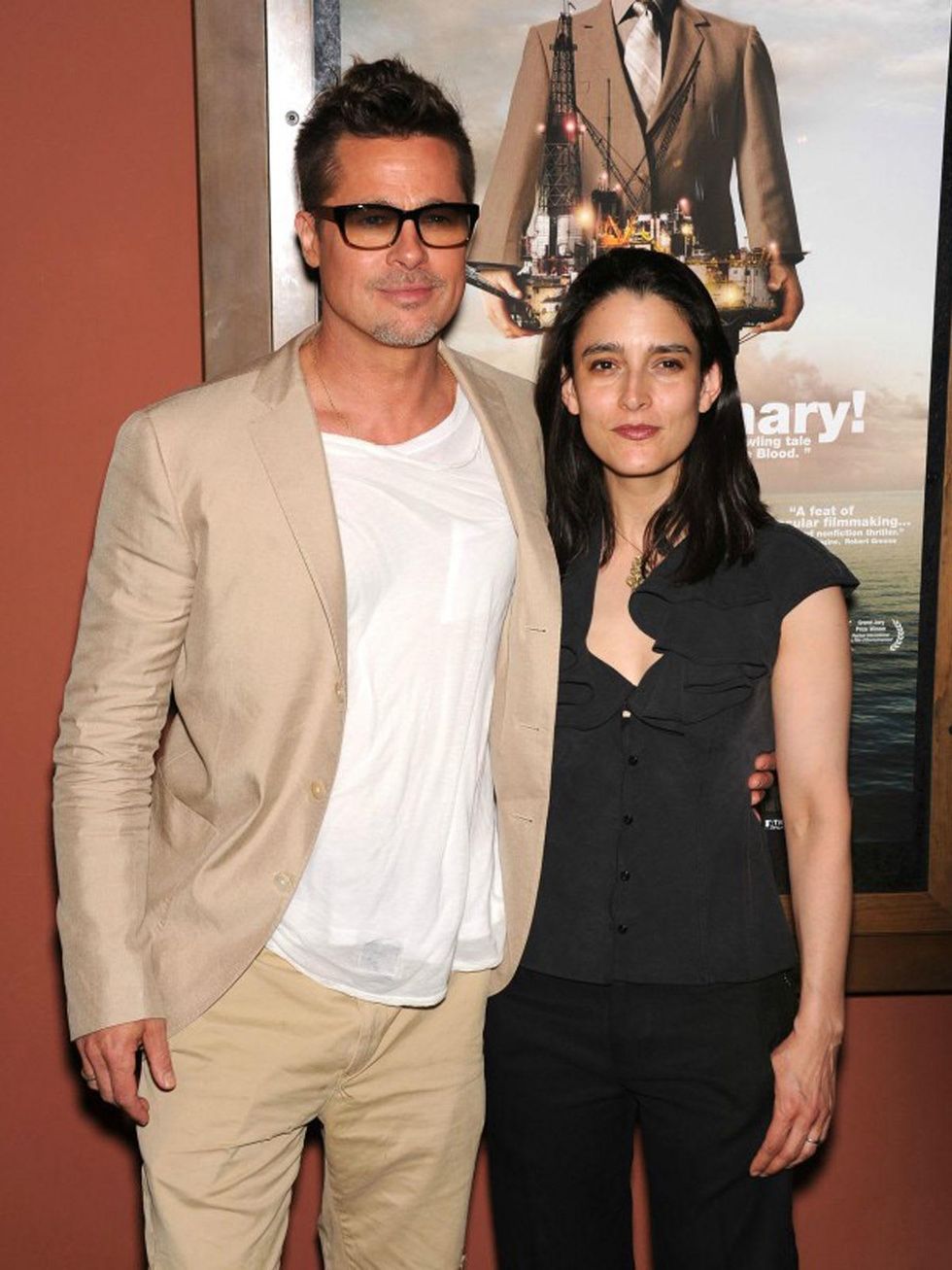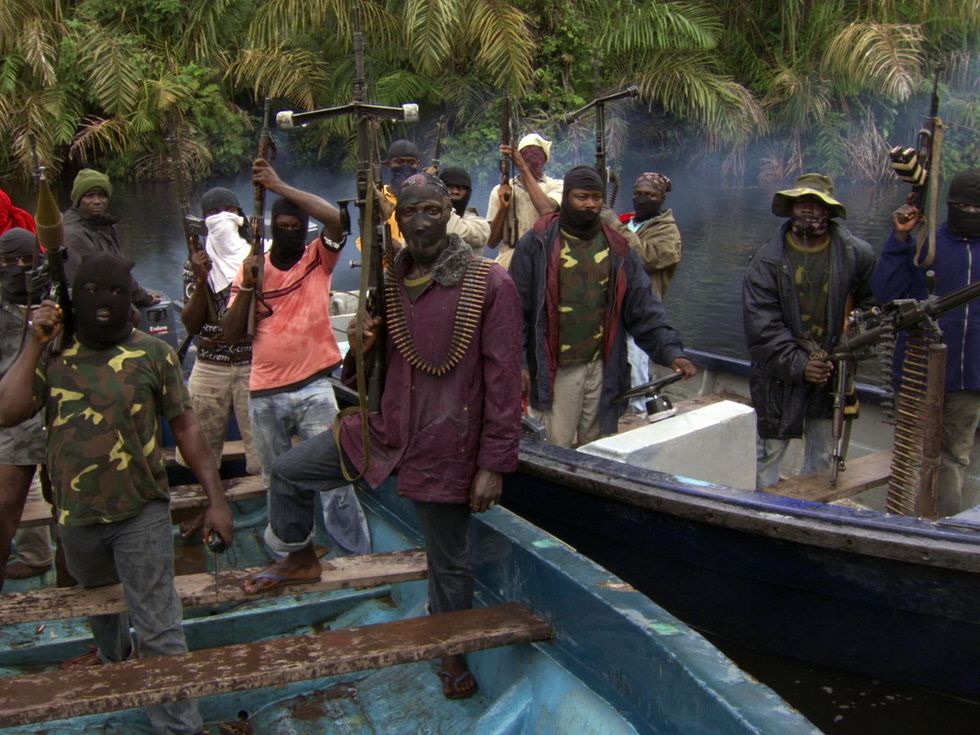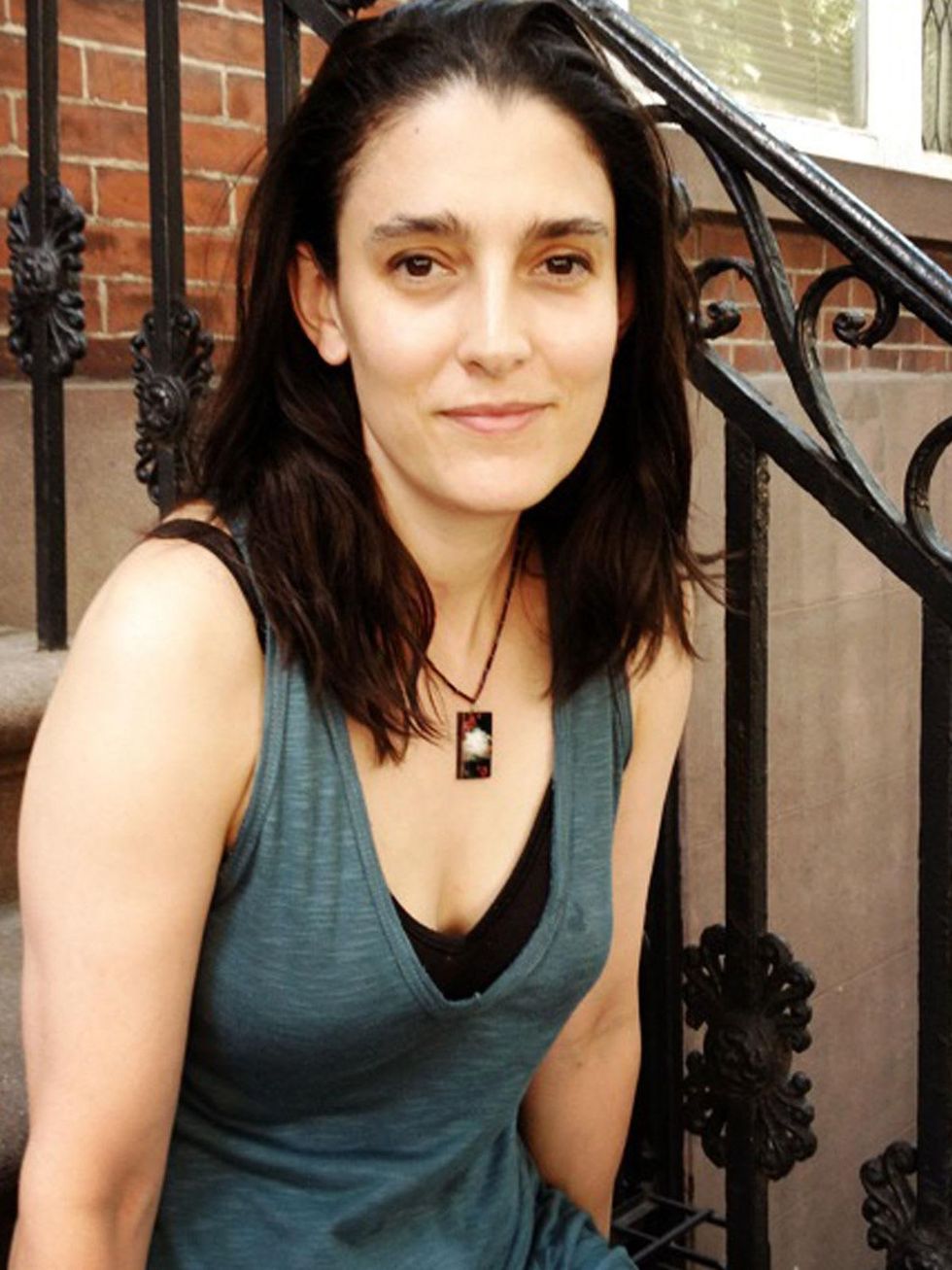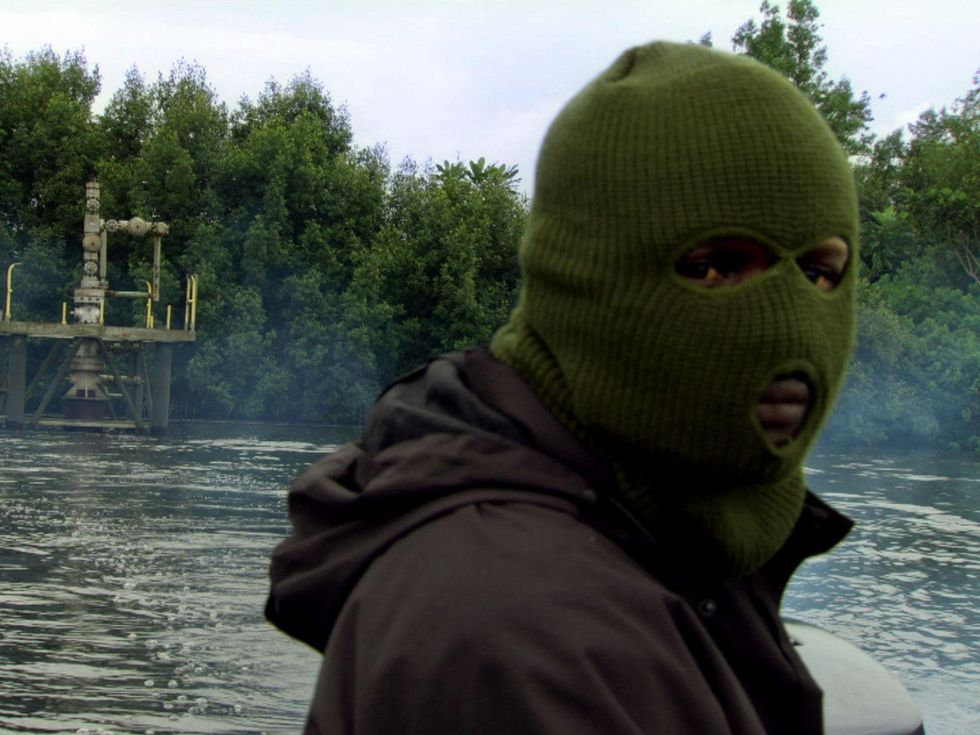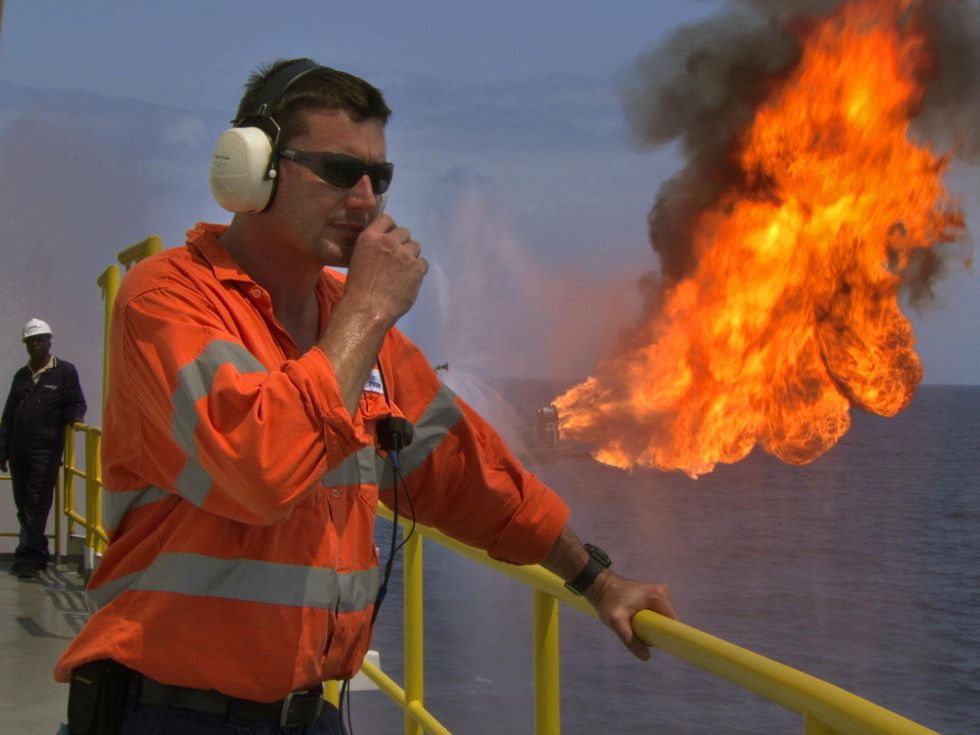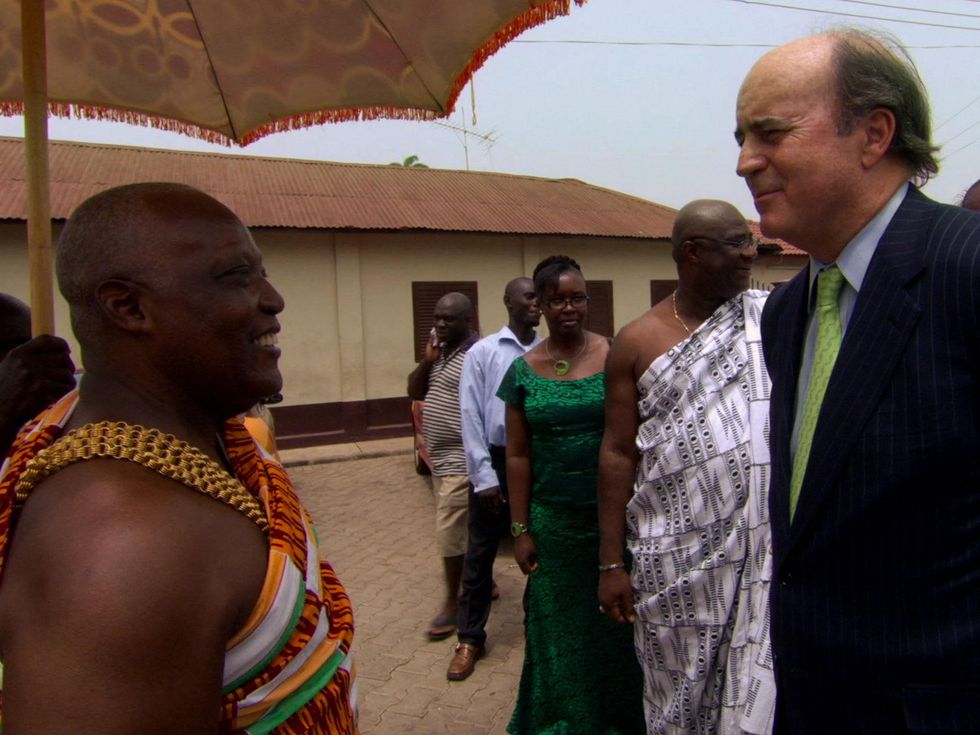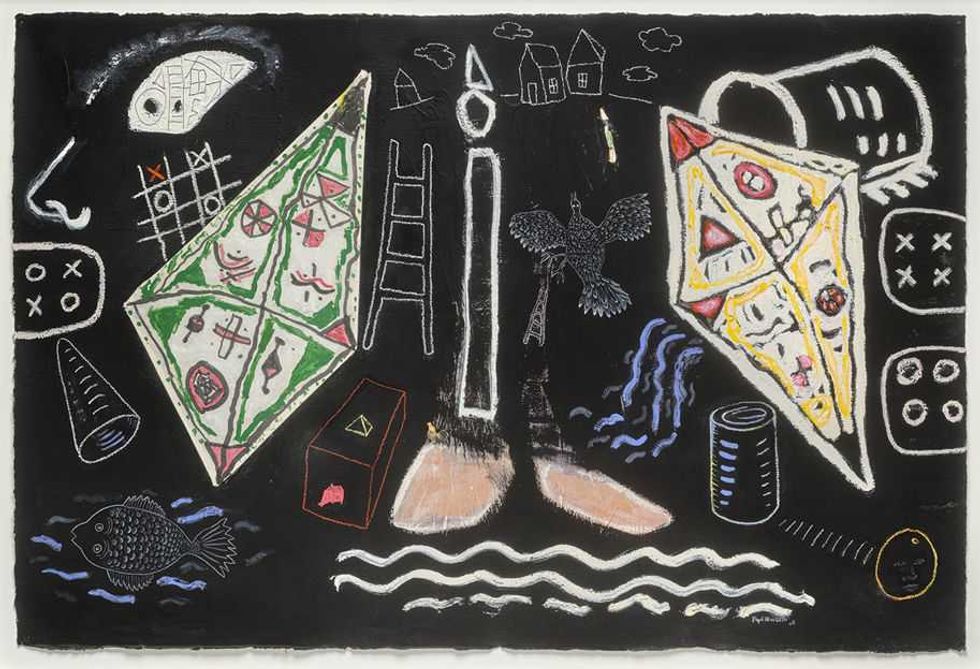At Sundance
Big Oil, Bigger Greed: Big Men is a Brad Pitt-backed truth shocker — directed by one fearless woman
The more I learn about fearless independent filmmaker Rachel Boynton, the lower my jaw drops and the greater my respect.
She has directed and produced a fascinating true and twisting tale of oil and greed called Big Men: Everyone Wants to be Big, playing through June 12 at Sundance Cinemas in Houston.
- The film took six years to make (two years just to get permissions and paperwork in place).
- She filled up two passports from all her travels between West Africa and New York (with stops in Dallas and Houston).
- She had two babies during that time frame, daughters now 2 ½ and 20 months old.
- She faced masked armed militants and suspiciously cooperative foreign government officials.
- Her first footage was shot at Houston's Offshore Technology Conference.
- The project so impressed Brad Pitt he became an executive producer.
Think about it. Here’s this young woman, with her first award-winning documentary, Our Brand is Crisis, fitting comfortably under her belt, who had just gotten married and was pumped to tackle her next film project. Little did she know, however, that her new film would become a groundbreaker and consume her life for the next six years.
It began as a “crazy idea,” Boynton told me in a phone interview. "I kept hearing these stories that we (America) were running out of oil and then I heard about an unbelievable situation in Nigeria where militants were blowing up pipelines and causing world oil prices to skyrocket." Boynton was fascinated by "the conflict between big oil money and small town rebels with machine guns."
After her honeymoon, she bought a ticket to Nigeria and started "knocking on doors."
The quest took her around the world and into places never seen — the private dealings of an American oil company and the camps of foreign armed rebels who stole oil to survive.
It’s a stunner of investigative journalism.
Big Men is an edge-of-your-seat account, filmed as it actually unfolded and not in retrospect, about a start-up Texas oil company, Dallas-based Kosmos Energy, that took an insane risk to discover massive oil reserves in one of the poorest places on earth, the West African Republic of Ghana.
Between 1960 and 1999, Nigerian officials stole or wasted more than $440 billion and the country is consistently ranked one of the most corrupt in the world.
Making this kind of movie takes guts, patience, and a truck load of persistence. West Africa is a long way from New York where Boynton lives, and to film something “as it happens” makes for long, uncomfortable situations while waiting, and waiting, and waiting for "it to happen."
Her film ”crew” was only Boynton and a cinematographer. She recorded the sound herself — and carried the luggage. (Revealing side note: In high school, Boynton was voted “Most Likely to Argue with the Teacher about the Symbolic Meaning of Something.” An early clue to her talent perhaps?)
Boynton was allowed unprecedented access to Kosmos Energy’s private conversations and when they discovered a whopping oil reserve off the coast of Ghana, Boynton told them, "There's a movie in here with you guys."
It was 2007 and Kosmos Energy's was the first major discovery in Ghana. Ever.
Boynton says the company's CEO Jim Musselman, believed the Ghanaian discovery was "worth somewhere between four and five billion dollars" at that time.
She followed Musselman as he traveled to Ghana and neighboring Nigeria to meet with kings and government officials to assure that what Kosmos pumped off-shore was rightfully accounted for and distributed.
To Boynton, this was all a "thrilling ticket to a secret society."
Nigeria is one of the largest exporters of oil in Africa and the fifth largest supplier to the U.S. But the riches from their oil reserves are not filtering down to Nigeria’s people, who are achingly poor without even safe water to drink.
The king of the African state Egbema told Musselman that “Even one millionth of the oil money (so far) had not been plowed back into the territory from where this big money has been made. Our people have seen what comes out of our land that is making some other people to be known as big men.”
Between 1960 and 1999, Nigerian officials stole or wasted more than $440 billion and the country is consistently ranked one of the most corrupt in the world.
Oil, as we know in Texas, can bring out the ugly in people.
Accompanied only by her cinematographer, Boynton faced situations in Ghana and Nigeria where most of us would have cut and run, like when she was met with a group of masked Nigerian militants, who call themselves the Deadly Underdogs and wear automatic weapons like jewelry. They never allow women into their camps, for strong religious reasons. They point with AK-47s to make their point.
Boynton, however, must be other-worldly at persuasion. Not only did the rebels invite her inside their camp, they actually wanted to be in her movie, to have their side of the story told.
Since 2005, these rebel groups have been sabotaging oil pipelines in Nigeria, shutting down massive amounts of oil production because they are demanding more profits for their people. They see fat cat politicians reaping the benefits of oil, while their own people must live in the dark ages.
They take matters into their own hands.
There is one scene in Big Men where a Nigerian government official oh-so-politely and slyly answers Boynton's questions — all the while looking as if he could chew her up and spit her out.
Was she ever frightened? “I was much more frightened by the Nigerian government (than the militant rebels),” she said.
But her biggest fear? “Being kicked out of the country with only half a film!”
Boynton chose a thought-provoking quote by economist Milton Friedman to begin her movie:
“Tell me. Is there some society that you know that doesn’t run on greed?
What is greed? Of course, none of us are greedy.
It’s only the other fellow that’s greedy.
The world runs on individuals pursuing their separate interests.”
Big Men goes on to capture a speech by the minister of environment for Norway, Erik Solheim, at Ghana's first Oil and Gas Conference . He boldly admits, "Oil tends to be a cash machine for politicians" and yet "Our philosophy in Norway is that the oil revenue belongs to the people of Norway, NOT to anyone else. And I would suggest that the oil revenue of Ghana belongs, pure and simple, to the people of Ghana. No one else.”
Boynton’s film asks us to consider the struggles, corruption, and complexities of a small fragment of the oil industry and the difficulties U.S. oil companies face after their explorations result in discovering black gold outside of America.
It is indeed, a whole other world. And one we might not have seen if not for one persuasive and persistent filmmaker.
